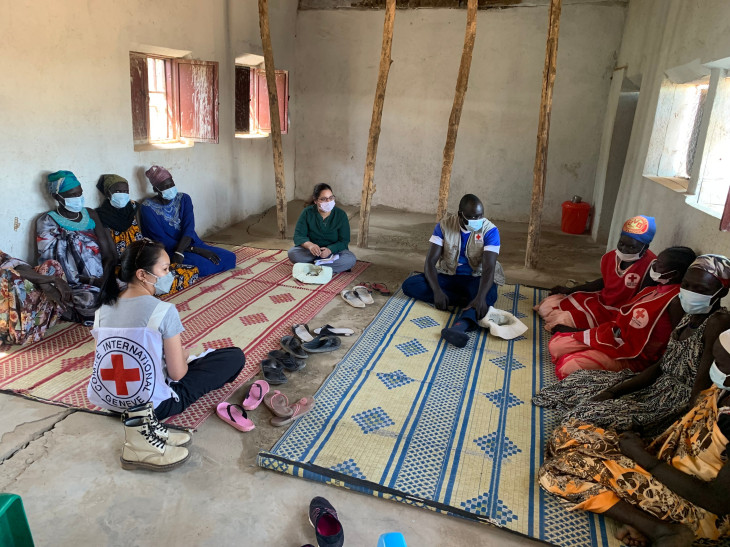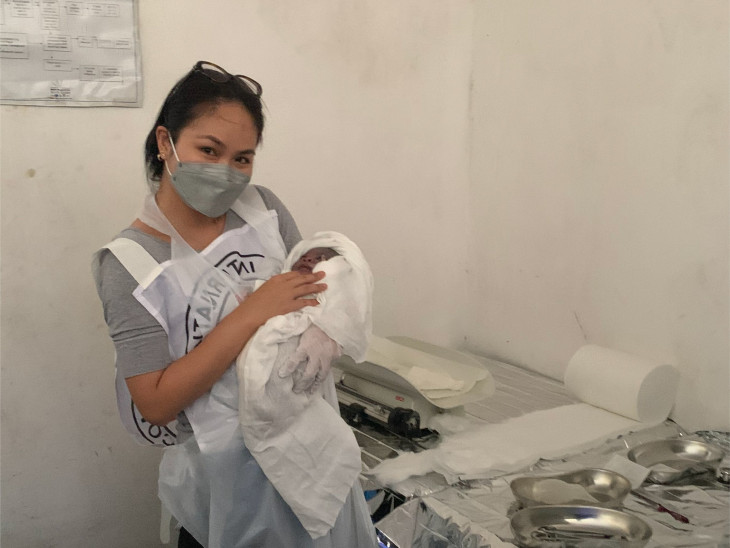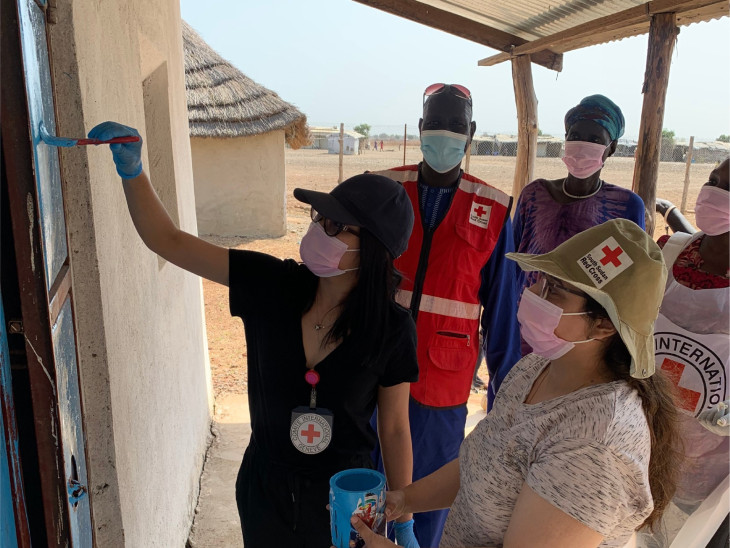What she saw broke her heart – several tired women were huddled together, their faces rife with anxiety as they held their sleeping babies. Some of the older children played, while others sat quietly soaking in their new setting. A few adults were crying, worried about their family members who had gone missing amidst the chaos of the fighting.
PJae, along with colleagues from ICRC and staff from the Philippine Red Cross, facilitated the evacuation of hundreds of residents of Marawi, most of whom were elderly people, women and children. “The ICRC, which had a long presence in Mindanao, was one of the first international organizations to respond to the crisis, together with the Red Cross Society,” says PJae.
Working with the ICRC since 2016, the 40-year-old nurse has witnessed similar scenes of destruction and intense suffering in other parts of the world too – first in Syria, and more recently in South Sudan. She is one of almost 100 Filipino ICRC staff members who work in countries that are ravaged by conflict or violence. “It’s quite humbling. You realize that no matter where you come from, no matter what culture you belong to, when you are affected by armed conflict, everyone is on the same page,” she says.
A career full of twists and turns
PJae’s journey as a health-care advocate has had numerous twists and turns. After graduating from college and obtaining her nursing licence, she moved abroad to work in a hospital’s paediatric emergency room and neonatal intensive care unit. While she was paid well, PJae was bothered that some children could not receive immediate medical attention because of the steep hospital fees.
Pjae felt that she needed to do more to help people. She ended up moving back to the Philippines and working for the government and even went to law school. But she still felt something was missing.
That’s when she came across an advertisement for a communications’ position with the ICRC. “I did not know anything about the ICRC. I just wanted to work for a humanitarian organization. But the more I researched about the ICRC, the more I was fascinated,” she says. She applied for the communications’ position, but the human resources manager convinced her to apply for the position of a health field officer instead.
While her years of experience as a health-care worker made her a natural fit for the role, transitioning from a government job to the ICRC involved a shift in thought that she had not anticipated. PJae had to learn the importance of the ICRC’s neutral and impartial principles. “As an organization with a purely humanitarian mission, the ICRC cannot take sides in a conflict, nor be perceived that it does. The staff have to be cautious when sharing their opinions on different issues so that the organization’s Fundamental Principles are not compromised. It required some adjustment on my part,” she says.
The world needs more humanitarians, especially where government functions have almost collapsed because of conflict. We need humanitarians who are kind, compassionate and have a lot of empathy.
PJae Maulana, ICRC health delegate
Hard but fulfilling days
PJae is honest that her job is far from easy. In the days following the Marawi conflict, she had to work many hours at a stretch along with ICRC colleagues. During the height of the COVID-19 pandemic in 2020, before vaccines became available and there were strict travel restrictions, she went to Syria. “I travelled from the Philippines to Dubai, to Lebanon and then to Syria. It was very interesting and daunting because I was the only person at the arrivals section in Dubai,” she says.
In parts of South Sudan, she had to learn to live without some of the basic facilities – clean water, electricity and stable internet – that she was used to back home in Cotabato.
But she is undeterred because she believes in the importance of bringing medical care to vulnerable communities. “We are very hands-on and we go to areas that others cannot access. Some people may think these places are unsafe, but we prioritize such places to help the communities that have little or no access to health care. The job is physically demanding but it is very fulfilling too,” she says.

PJae speaks to community members during a focus group discussion in South Sudan.
Photo: P.Maulana/ICRC
But there are special experiences that make up for all the struggles along the way. In February 2022, she went on a three-day trip to Adok, a small town in South Sudan, to train health-care workers in helping pregnant women give birth. One day, PJae and a colleague were woken up at 4am and asked to help a pregnant woman who was in labour. An experienced neonatal intensive care unit nurse, PJae assisted in taking care of the newborn baby. Overjoyed that her baby was safe, the mother decided to name her daughter after PJae. “I told them PJae would be a weird name for the baby, but my real name is Princess. So, they named the little girl Princess,” she says.

PJae holds “Princess,” the child who was named after her. PJae assisted Princess’ mother during labour and took care of the baby. Photo: P.Maulana/ICRC
Another experience that she remembers fondly is from her time in Syria. PJae and her colleagues visited a prison that hadn’t been accessible to humanitarians for many years. “We didn’t offer any material assistance to the detainees. We just explained that we were there to check on their condition and if they were receiving basic services. At first, the detainees looked apathetic. But when we explained our work, their faces slowly lit up,” she recalls.
PJae’s experiences have cemented her conviction that now, more than ever, conflict-affected people need the support of humanitarian workers. “The world needs more humanitarians, especially where government functions have almost collapsed because of conflict. We need humanitarians who are kind, compassionate and have a lot of empathy,” she says.
We acknowledge Source link for the information.




